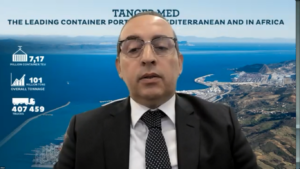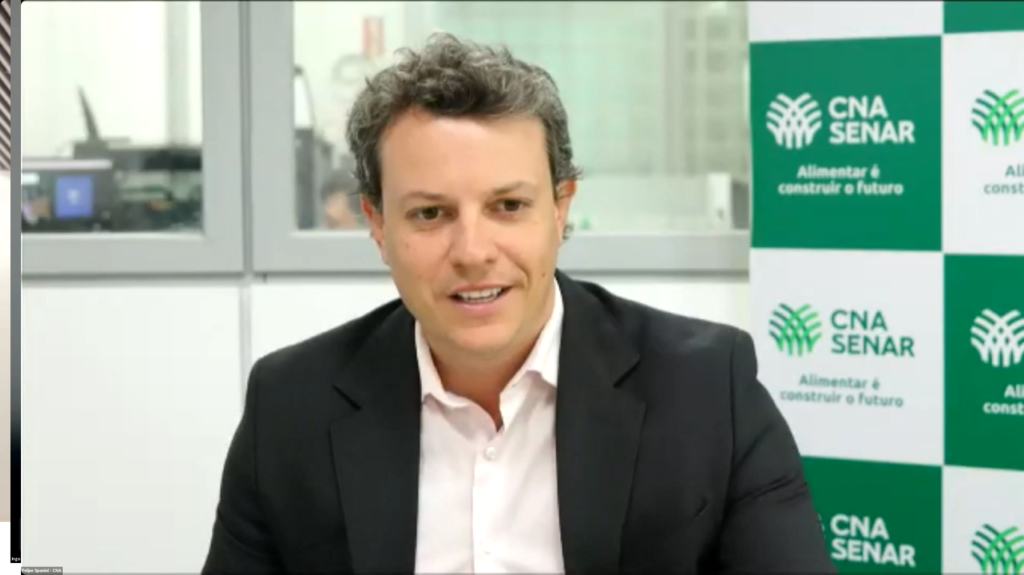São Paulo – Brazilian protein exports have the potential to grow in the Moroccan market. According to Felipe Spaniol (pictured above), Commercial Intelligence coordinator of the Brazilian Confederation of Agriculture and Livestock (CNA), despite Brazil being a significant exporter of animal proteins such as beef and poultry, it still does not make a substantial volume of shipments to Tanger-Med Port. The port complex in Tangier city is the largest in the Mediterranean and Africa.

Spaniol stressed Asia, the Middle East, and Africa are the regions that increased their purchases of Brazilian agribusiness products. “We see a lot of opportunities for two reasons. The first is the expansion in imports and population growth in these regions, and the second is the higher income of these populations. And Brazil can contribute to this new reality, especially to African countries,” he said.

He spoke at the webinar’ Tanger-Med (Morocco): Hub for Brazilian Agribusiness’ this Thursday (10). The event was held by the Moroccan embassy in Brazil and the Arab Brazilian Chamber of Commerce (ABCC). At the opening of the webinar, diplomat Osmar Chohfi, president of the ABCC, recalled the growing importance of sales from Morocco to Brazil. “On Brazilian imports from Morocco, this is very interesting; sales have increased much in recent years. Morocco is one of our main partners and a major supplier of fertilizers,” he said.
Nabil Adghoghi, Morocco’s ambassador to Brazil, recalled the importance of bringing topics such as the capacity of the Moroccan port to the discussion. “Logistics will be key to relations between Brazil and Morocco in the coming years,” said Adghoghi.

Port Tanger-Med is located in northern Morocco, close to the Strait of Gibraltar. “It’s the shortest distance between Europe and Africa,” said Hassan Abkari, managing director of Tanger-Med Port Authority. The managing director also stressed the Arab country’s privileged location helped to make it a partner of industrialized countries and farmers in their plans to establish supply chains.
Rachid Houari, deputy managing director of Tanger-Med Port Authority and managing director of MedHub Logistics Zone, explained the structure includes four terminals for exports of goods such as automobiles to 70 destinations, including Brazil, in addition to trucks.
For Idriss Aarabi, director of import & export operations of Tanger-Med Port Authority, one of the strengths is the volume of daily operations. “Many companies export fruits and vegetables from Port Tanger-Med due to the frequency of shipments. And we have departures from this terminal every half hour,” he explained.

Another panel featured Ted Lago, CEO of Itaqui Port, located in the northeastern Brazilian state of Maranhão. Lago highlighted the facility’s location with rail connections with vital soy-producing regions in Brazil. Ricardo de Amorim, Logistics Operations director of Port of Itajaí, in the state of Santa Catarina, highlighted the importance of the Tanger complex with which the Brazilian port has had direct shipping lines for at least ten years.
Ingo Plögler, International Relations vice president of the Brazilian Association of Agribusiness (ABAG), pointed out it is also essential to be aware of opportunities such as those free zones can offer to Brazilians. The panel moderator was Elaine Prates, Institutional Relations executive of the ABCC.
Translated by Elúsio Brasileiro




